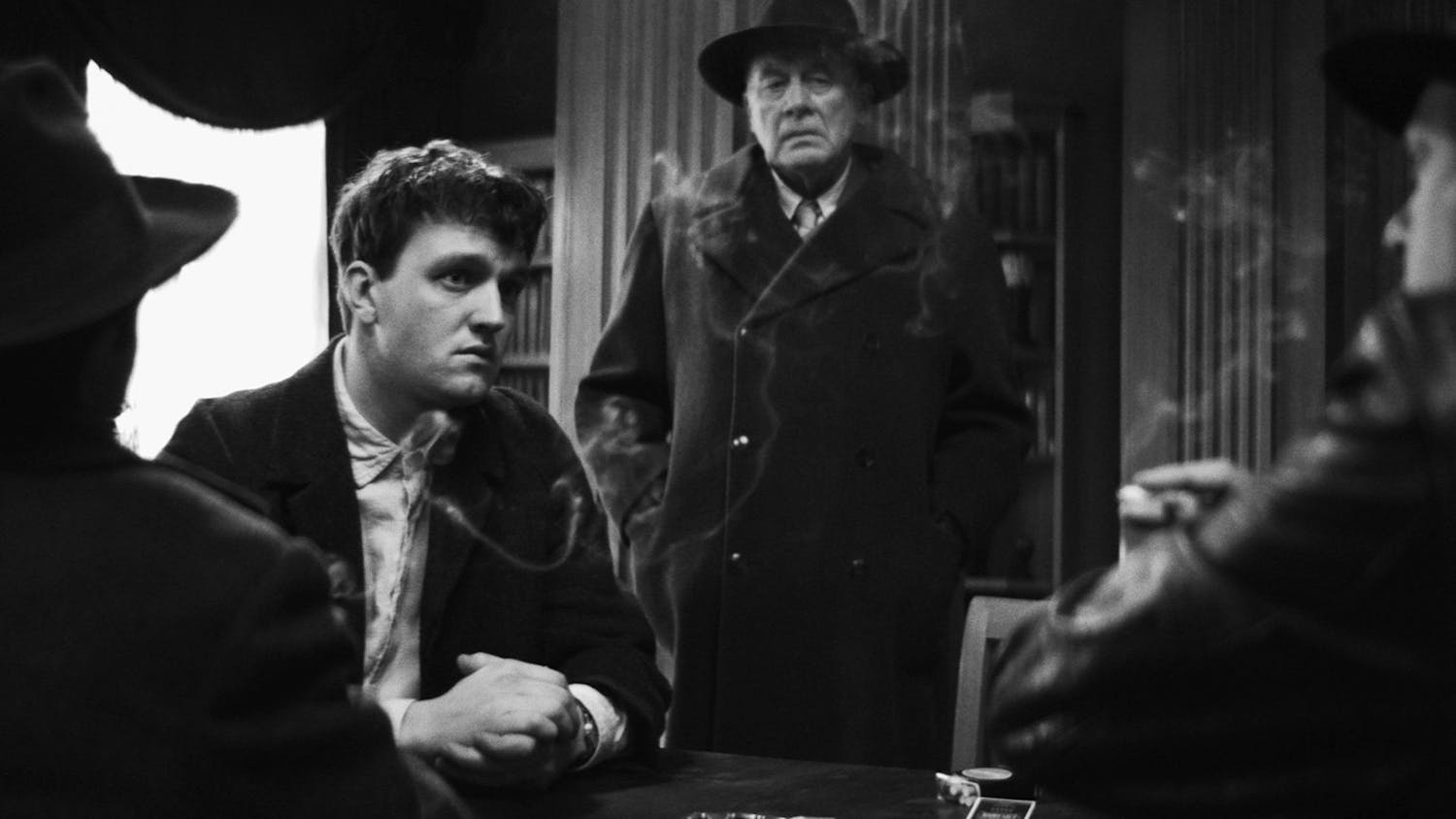My favorite film from this year’s Wisconsin Film Festival would have to be “Without” from writer/director Mark Jackson.
Starring Joslyn Jensen as Joslyn, a nineteen-year-old girl who takes a job as the caregiver for a catatonic elderly man in his home on a secluded island, the film explores how isolation and disconnection can mess with the mind. The film is especially concerned with today’s world and how it is normally oversaturated with connection through cell phones and the Internet. Upon arriving at her house of employment, Joslyn discovers that she does not receive any cell reception, save for a single bar inside the bedroom of her ward Frank, played with just the right combination of brain-dead and a lingering hint of menacing creepiness by Ron Carrier. To make matters worse, the house lacks any functioning Internet connection—even ancient dial-up, as Joslyn comes to find while attempting to satiate her craving for digital connection by any means necessary.
Considering just how brutally cellphones and the Internet would have eviscerated the plots of countless classic movies, it’s no surprise many writers have been choosing to simply ignore the issue altogether with the now standard toolbox of cellphone negating clichés. Horror movies love to make use of fittingly titled dead zones and drained batteries, denying their protagonists any shred of twenty-first century comforts. In recent years, it effectively teleported them back to the Reagan ‘80s, but now they are lacking even the prospect of plentiful payphones. The scene of a character waving his phone around over his head, only to discover “no bars” is already becoming as requisite as a car engine stalling briefly upon startup while the driver is being chased.
Dramas keen to escape the cellular revolution are quick to go down the period piece route—even just going back a decade in some cases—to once again reach a simpler time when people still mostly talked face-to-face, avoiding the quagmire of text messages.
Even comedies have been forced to take heed and find their own ways to work around the prospect of instant communication. Could you imagine a rendition of John Hughes classic “The Breakfast Club” set in modern day? Those kids would have been texting, tweeting and Facebooking about how lame Shermer High detention was, and would have never resorted to speaking to each other, let alone becoming unexpected friends, with a world of distraction at their fingertips.
Countless comedy flicks have hinged on the Shakespearean tradition of a plot driven by missing or miscommunicated information. While some comedy writers go the horror route of playing up the instability in cellular technology, and others simply go vintage, the most prominent solution seems to be to just get the characters as messed up as possible on whatever inebriant is most appropriate.
Because when the protagonists are severely blitzed, blazed or bombed, it’s suddenly understandable why cell phones aren’t much use. Just look at the highest grossing R-rated comedy of all time, “The Hangover.” In a time when finding your lost best friend should be as easy as texting him, “Where you at?” it takes grandiose intoxication to once again make missing information a realistic problem.
What this all seems to come down to is an issue of writers and filmmakers trying to propagate an old perspective onto a new century. While on the surface “Without” would seem just as guilty of the convenient ‘no bars’ cop-out as a plethora of its peers, in reality it’s the polar opposite. Rather than utilizing a lack of cell phone reception to revert back to a classic mode of storytelling, “Without” presses onward, examining what exactly such an experience of extended disconnection would feel like for someone raised on such incessant connection.
Jackson stages a remarkable scene, shot craftily from behind the screen of a computer. The shot peers back at his protagonist, as she seemingly engages in a session of Skype sex with an unseen partner, speaking to the computer as if her partner were right there in front of her. This mode of disembodied interaction, of participation in a relationship with an intangible partner, is a behavior that has already been completely normalized by the millennial generation.
But Jackson turns it on its head when we realize Joslyn still hasn’t connected to the Internet, and is pretending to seduce a blank screen. This manner of digital engagement has become so standard to her that when deprived of both digital and personal connection, she resorts to interacting with an imaginary digital person just as someone under extended isolation might have begun to carry on conversations with invisible corporeal companions in the less technology-indoctrinated past.
Depriving characters of cellphones, the Internet and the rest of our twenty-first century technology cocoon isn’t a practice that should be avoided altogether. But it should be used, as Jackson does in “Without,” with due respect paid to how the sudden loss of a tool we have become so dependent on actually affects us, not simply as an excuse for lazy disregard of how life actually works in this perpetually wired twenty-first century.
Direct questions and comments to David at dcottrell@wisc.edu.





